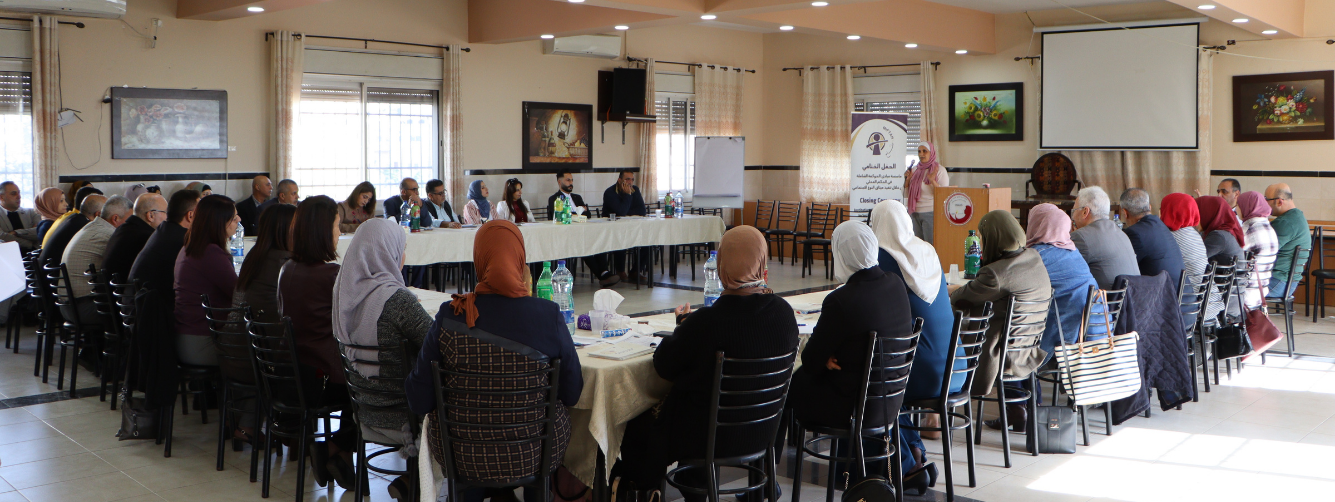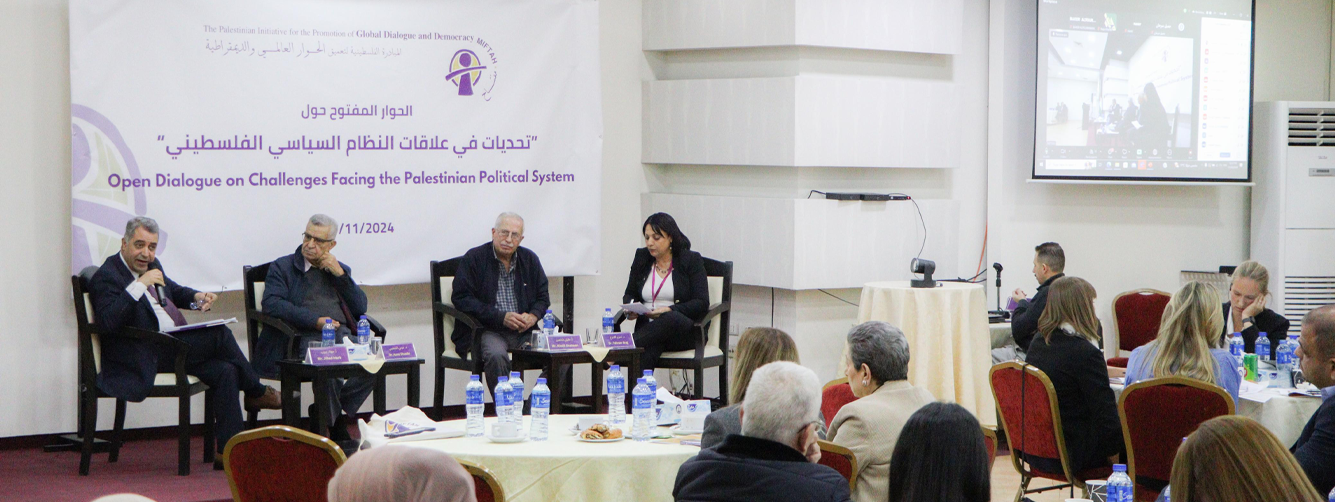
Ramallah – 29/11/2021 – MIFTAH and the Ministry of Local Government launched on 28/11/2021 a manual of bylaws for enacting the gender charter in local councils. The manual was introduced during the closing ceremony for MIFTAH’s project, “Institutionalizing the principles of comprehensive governance in local councils through application of the gender charter”. The project is part of joint efforts by MIFTAH and the Ministry of Local Government, with substantial participation from the Ministry and its directorates in West Bank districts in addition to a number of local council members and CSO members of the gender forum in the Ministry.
In her opening speech, MIFTAH Executive Director, Dr. Tahreer Araj stressed that “to achieve justice and equality for women, the principles of human rights and international agreements signed by Palestine must be the baseline in creating a real democratic society that begins with our local communities.” She continued that as part of its approach, in cooperation with the Ministry of Local Government, MIFTAH held several interventions to create an environment conducive to the active participation of women, including enacting the gender charter. This, Araj, maintained, is to promote the role of women local council members in taking the lead in community work within their own communities. “I hope this will be the beginning of serious action to empower women, increase the efficacy of their participation and oblige institutions to commit to this participation,” she said.
On his part, Dr. Tawfiq Budeiri, Deputy Minister of Local Government, called for an evaluation regarding the specifics of the local government as a central, citizen-oriented service sector. “The methodologies used in local government need special review in regards to advocacy, institutionalization and empowerment.” He added, “As the local government ministry, we are very determined and will continue to remain supporters of the gender issue. It should be noted that there are many departments in the ministry and directorates currently headed by exceptional women.”
MIFTAH then showcased the executive bylaws for enacting the institutionalization of the gender charter in local councils. It confirmed the proposed procedures within the manual, which are meant to support the process of gender integration in local government and promote a supportive and motivating environment for the participation of members, both male and female, in fields relevant to the work of local councils. They are also aimed at creating an institutional gender-responsive culture centered on a participatory approach and based on consultations with various social sectors irrespective of race, age, religion, political affiliations or social or economic status. The presentation also addressed the auxiliary manual for executive bylaws, which includes consultative procedures to help local council members implement the bylaws towards empowering, involving and treating members equally.
On behalf of MIFTAH, elections expert Dr. Taleb Awad and sustainable development experts Samer Jibril and Osama Saleh, put forth several practical recommendations that could push towards implementing the gender charter. They stressed on the importance of reforming the legal system in this regard by increasing women’s representation in all local councils by no less than 30%. They also called for reforms to the Local Councils Law, No 1 of 1997, the Local Elections Law, No. 10 of 2005 and for obliging municipalities to implement the gender charter in its various departments and link it to the evaluation and categorization process for municipalities in coordination with the Municipal Development and Lending Fund. They also called for: the need to promote and build gender units in local council directorates; the importance of enhancing the role of the gender forum in local councils and working towards capacity building for women in factions; and adopting gender-responsive policies and measures in structures within the Ministry of Local Government.
Several participants stressed on: the need to involve women and men in training for local council members as soon as they assume their positions in their respective councils; to prepare trained and capable gender cadres within the Ministry of Local Government to push towards sustainability; the need for gender units with their own structures similar to other departments; to revive the partner relationship between civil society and the Ministry of Local Government; to provide opportunities to include special courses on women and elections in local universities.
MIFTAH project manager, Najwa Sandouka-Yaghi said the meeting was part of a series of capacity-building interventions for over 100 employees in Local Government directorates and local councils in 11 West Bank districts, which MIFTAH has carried out in cooperation and coordination with the Ministry of Local Government’s gender unit throughout the last quarter of 2021. This, she maintained, is part of MIFTAH’s strategic approaches aimed at promoting good governance in Palestine through official institutions and local councils. It also falls within the organization’s efforts to develop public policies that guarantee the protection of citizens’ rights for all, promote the participation of Palestinian women in public life and guarantee their representation in decision-making positions.








